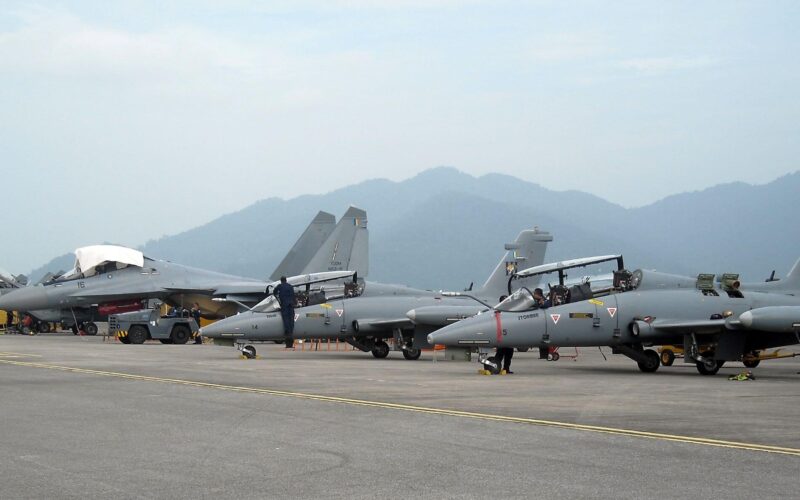Six bids have been submitted to the Royal Malaysian Air Force (RMAF) light combat aircraft (LCA) tender, according to Malaysian media reports.
The bids include India’s Hindustan Aeronautics with the Tejas, a conglomerate of Russian-led companies with the MiG-35, China’s Catic with the L-15, Korea Aerospace Industries (KAI) with the FA-50, Turkey Aerospace industries (TAI) with the Hürjet, and Italy’s Leonardo with the M-346.
The news was reported by the Malaysian business newspaper, The Edge Malaysia Weekly, with a reference to an unnamed source close to the matter.
The list does not contain the Pakistani-Chinese JF-17 Thunder, which was rumored to be one of the prime contenders. The Boeing T-7A Red Hawk and the Yakovlev Yak-130 are also absent.
According to The Edge, the tender documents were acquired by nine companies, while just six of them sent their bids before the closing date on October 6, 2021.
Earlier reports by the Malaysian media indicated nine contenders. Besides the T7A, the Yak-130, and the JF-17, they also included the Czech Aero Vodochy L-39NH, but excluded the TAI Hürjet.
Malaysia announced the LCA tender in June 2021 in the wake of international tensions in the region. The country intends to purchase 18 aircraft, with the opportunity to add a further 18 to the order later. Eight aircraft from the initial batch are intended to be used as trainers and 10 will act as light combat aircraft, performing both air-to-ground and air-to-air missions.
According to The Edge’s source, requirements for the aircraft include aerial refueling, beyond-visual-range (BVR) combat and supersonic flight capabilities, as well as containing at least 30% of parts produced in Malaysia. The manufacturer will also start deliveries within 36 months after the contract is signed.
These requirements exclude the L-39NH, which is not supersonic. It seems that all the other aircraft meet the requirements, or at least can be modified to do so.
The TAI Hürjet is the only aircraft of the six that has not yet performed a maiden flight ‒ its prototype is expected to enter production in late 2021, and fly before the end of 2022. It is intended to replace the Northrop T-38 Talon as an advanced trainer for the Turkish Air Force, and also has a light combat variant.
The Indian HAL Tejas has been one of the primary fighter jets of the Indian Air Force since 2015 but has received no foreign orders so far.
The MiG-35, which has been offered by a corporation called Aerospace Technology Systems, is a deep modification of the Soviet-era MiG-29 fighter jet, which was retired from the Malaysian Royal Air Force in 2017. The MiG-35 was adopted by the Russian Air Force in 2019 but is yet to be mass-produced or sold outside Russia.
The L-15 Falcon, offered to Malaysia by the China National Aero-Technology Import & Export Corporation (CATIC) and produced by the Hongdu Aviation Industry Corporation (HAIC), was introduced in 2010 and is currently on its way to becoming the primary lead-in fighter trainer for China’s Air Force and Naval Air Force.
The KAI FA-50 Golden Eagle, a light combat variant of the T-50 trainer, has already been adopted by the Philippines, while several other countries – including Indonesia, Iraq, Thailand, and South Korea – use the trainer variant.
The M-346 Master, developed by Alenia Aermacchi (later absorbed by Leonardo), has been delivered to numerous countries in a trainer variant. Its fighter attack version has been ordered by Turkmenistan and Nigeria.
Malaysia is currently involved in numerous territorial disputes with neighboring states. The Royal Malaysian Air Force employs the Sukhoi Su-30 MKM and the Boeing F/A-18 fighter jets, and has been reportedly scrambling its BAE Hawk light combat aircraft to intercept aircraft that approached its airspace.
AeroTime has contacted the public relations service of the Royal Malaysian Air Force for comment and is waiting to hear back.

